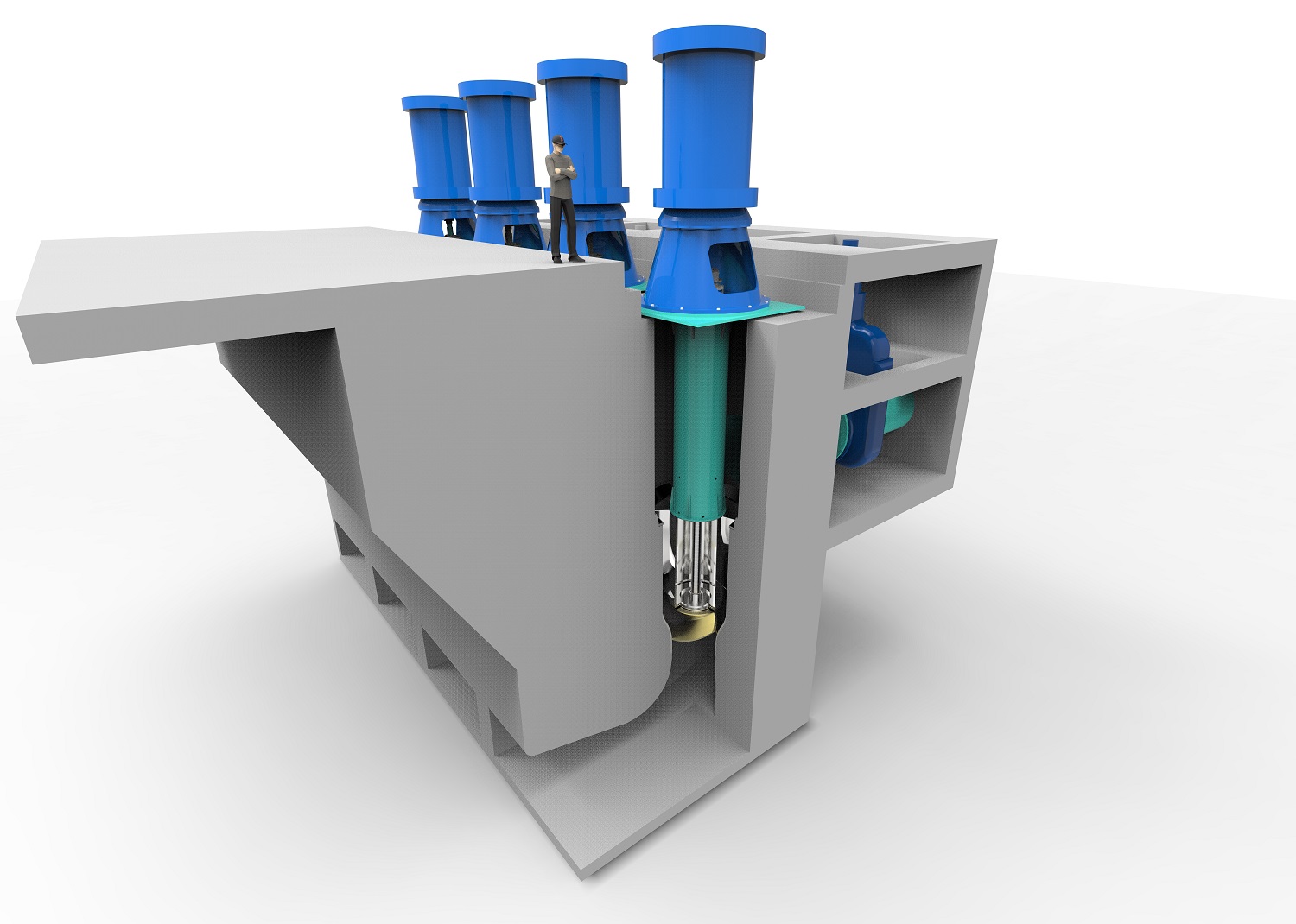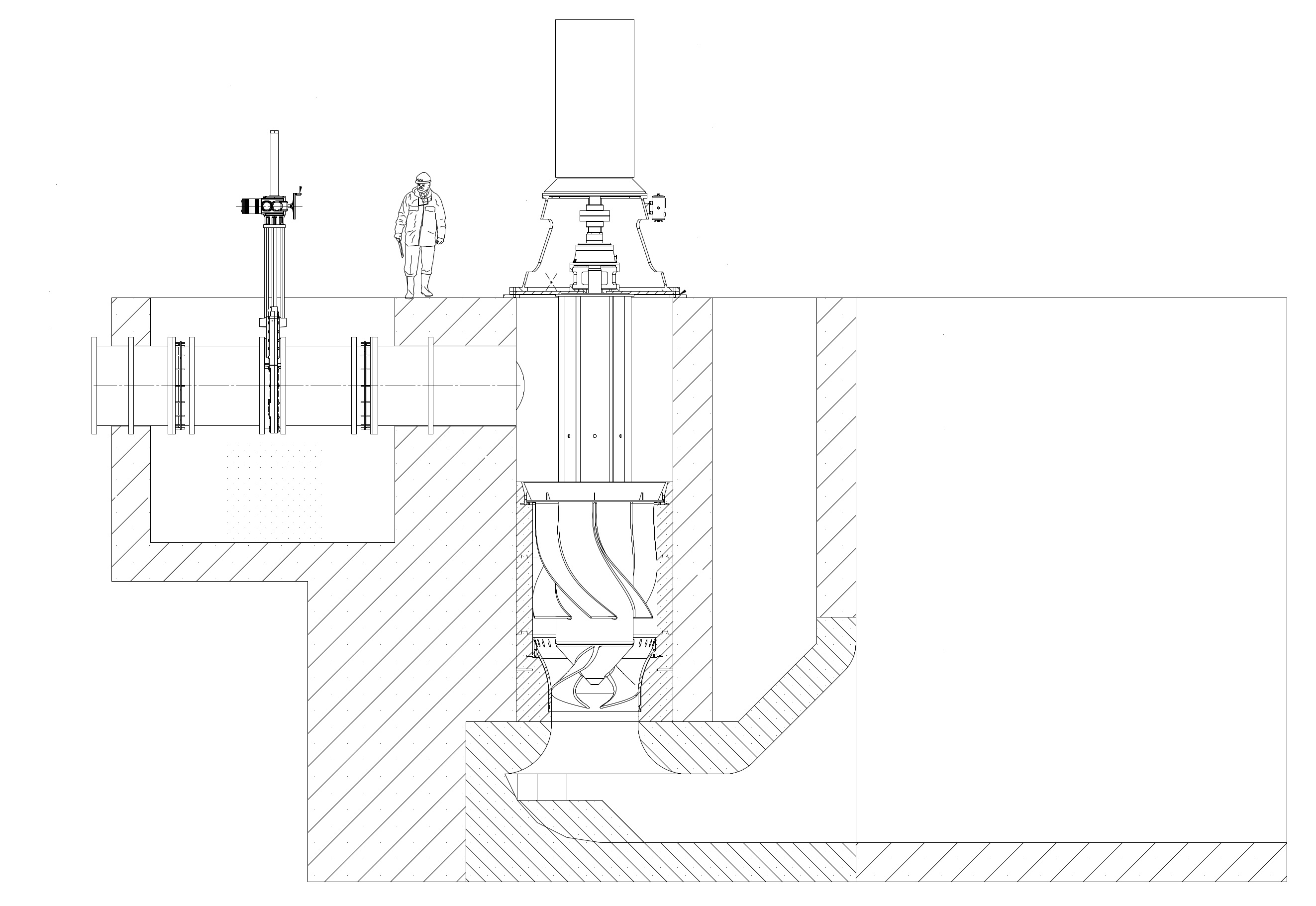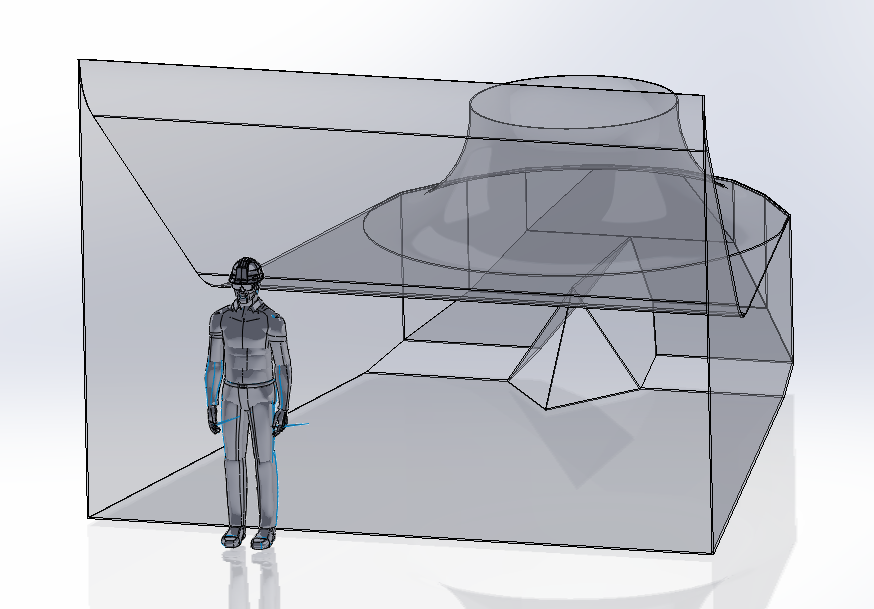


Bedford Pumps, UK manufacturer of high capacity pumps for land drainage and flood control, has been awarded a contract to supply fish friendly concrete casing pump sets for a new pumping station in Norfolk.
Islington Pumping Station in Kings Lynn, Norfolk, was originally constructed in 1959. It is owned and operated by Kings Lynn Internal Drainage Board (IDB) to pump water from the IDB’s drain to the tidal salt marshes of The Wash. The pumping station provides protection to almost 6,000 hectares of land, making it the largest single catchment within the IDB’s district. The catchment is largely fenland, so water is drawn to the station through the action of the pumps rather than gravity fed.
The existing pumping station operates with three diesel engine powered pumps rated at 2,800 l/s each. It has now reached the end of its service life and will be demolished following the construction of the new build station which will be situated at the end of the Straight Mile, a storage area which is a drainage channel taking the water back to the River Great Ouse.
The new station will have a total pumping capacity of 16,000 l/s and is designed around four concrete casing pumps operating at a capacity of 4,000 l/s per pump. This means that if the pumping station is running at full capacity, it would be capable of pumping 1.4 billion litres of water per day.
Suction intake
The pump casing has a concrete cast construction and is designed to operate with a formed suction intake specifically designed by Bedford Pumps. The vast suction intake (see Fig 3. to scale) was scale model tested and optimised at Hydrotec Consultants’ laboratory, operating at a total station capacity of 20,000 l/s, proving the infrastructure is future proof. The results were outstanding, with uniform flow patterns at the impeller inlet and free from pre-swirl, entrained air and surface and submerged vortices. The model test showed that the intake design allowed for very low minimum operating water levels.
Design advantages
The Bedford Pumps’ intake design offers significant advantages over a standard ANSI type 10 intake such as a significant reduction in the overall footprint and allowing the water levels to be drawn down to half the minimum submergence when compared to the type 10 design. The combined design of the pumps and the intake provides a very low footprint and will significantly reduce the excavation costs on site by allowing the pipework to be much closer to the surface. The formed suction intake will be constructed on site using very precise 3D printed polyform formers, allowing the civils contractor to accurately create the concrete intake.
Fish friendly
The four pump sets also fulfil the requirement for Islington Pumping Station to be fish friendly. The term fish friendly implies a machine which avoids or minimises damage to aquatic fauna. To allow fish (and migratory eels) to pass through any form of rotodynamic pump, it is recognised that conventional pump designs require substantial modification and the range and extent to which a pump can be utilised is relatively narrow. The specific elements within the pump which achieve these aims is obviously subject to company intellectual property but are briefly summarised below.
To achieve a fish-friendly status, the essential elements for pumps include:
- Relatively low impeller peripheral speed.
- High hydraulic efficiency. Energy loss into the fluid causes erratic streamlines, adverse pressure gradients and turbulence imposing unnecessary shear-stresses.
- Substantially Increased spatial clearances between the impeller and guide-vane casing. Any static vane, of whatever angle that is located closely behind the rotating impeller is a potential shearing surface and threat to fish.
- Internal areas which might trap debris are to be avoided. Static diffuser vanes should be designed so that they don’t trap vegetation and other suspended solids.
As part of the wider scope of the specific application:
- Pump operation in area of stable performance. The Bedford Pumps’ designs have been optimised to have a wide band of stable operation. (Optimum Nss values)
- Optimum sump design. The inflow to the station and intake positioning should minimise head-loss and invoke gradual transition into the pump inlet without adverse pre-swirl, uneven velocity distribution or air entrainment, all of which could result in obstacles to safe passage.
- Pipework and outlet designs must also be considered to optimise velocity and trajectory.
- Pump start and stop sequences should be evaluated and parameters should be adjustable to suit site and seasonal variations.
Bedford Pumps has been meeting the market’s need for fish friendly pumps for almost a decade and now has more than 100 operating units operating in virtually every corner of the world. The company is delighted to be working with contractors Balfour Beatty at Islington, King’s Lynn’s largest pumping station. The project start date was 25 June 2019 and the completion date will be 31 March 2021. Bedford Pumps’ scope of supply is the pumps, installation, commissioning and site verification testing.
Bedford Pumps is a flexible, highly experienced manufacturer of robust pumping plant for the water industry, and a UK manufacturer which has a predominantly British supply chain, which will also benefit from this prestigious contract award.
This article was supplied and written by Lucy Ogden, Marketing manager at Bedford Pumps.




